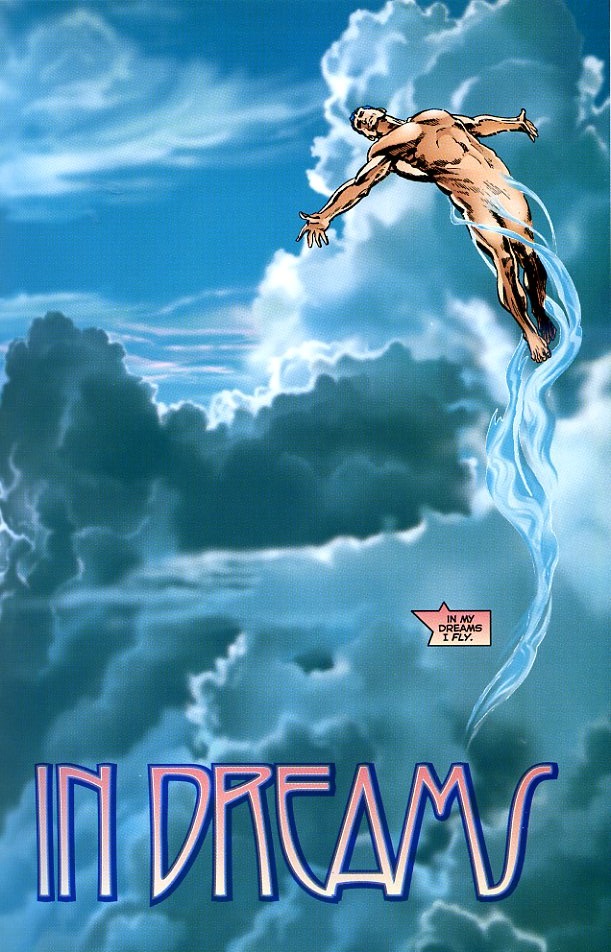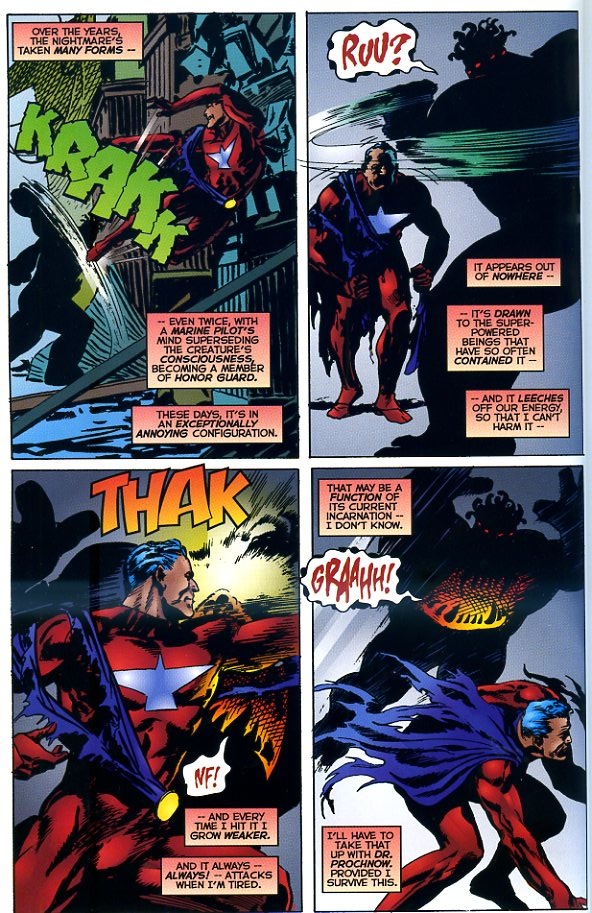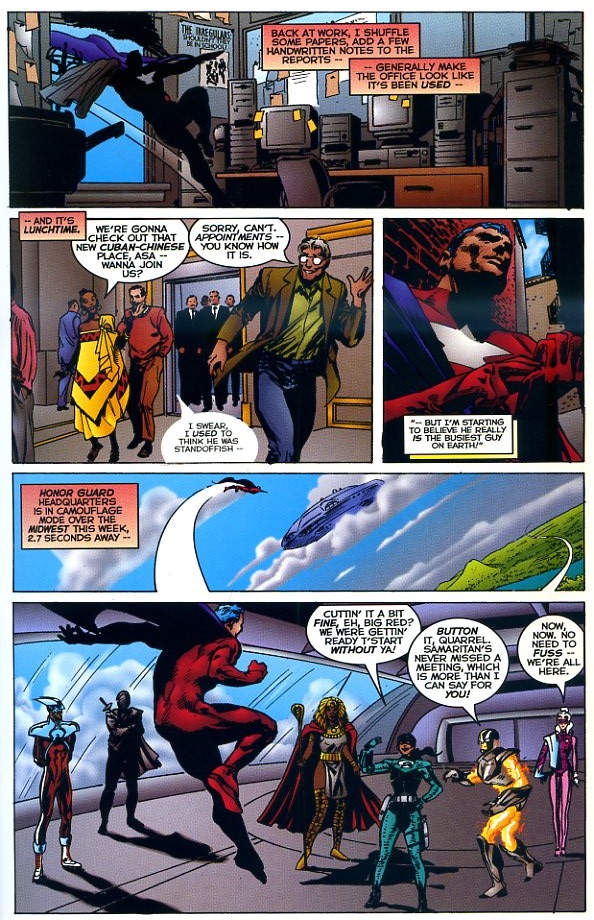In his long essay on Darwyn Cooke’s Before Watchmen work, William Leung convincingly, and even devastatingly, portrayed Cooke as a reactionary tool. Alan Moore and Dave Gibbons in Watchmen deliberately set out to undermine and deconstruct the assumptions behind superheroic archetypes and narratives. Cooke, Leung argues, set about reconstructing them. Or as Leung puts it:
Whereas Moore was interested in demolishing heroic stereotypes in order to explore the humanity beneath, Cooke is more interested in reinforcing stereotypes in order to prescribe for humanity what is and isn’t heroic. Under Cooke’s revision, a critique of heroic constructs has reverted to a defence of heroic constructs.
I am entirely convinced by Leung’s argument that Cooke’s Before Watchmen is a vile, steaming pile of shit. I’d like to make a brief case, though, that reconstucting heroic sterotypes isn’t necessarily evil or wrong-headed. Even, possibly, the “heroic power fantasy of heterosexual males”, which Leung sneers at, might in some cases be a force for good.
So if we want to discuss the virtues of reactionary nostalgic heterosexual male power fantasies, we should maybe take our eyes off of Before Watchmen (please God) and look instead at Kurt Busiek and Brent Anderson’s Astro City.
Astro City came out around 1995, it looks like — and I don’t think there’s much question that it’s in conversation, at least partially, to Watchmen. Its reaction is, moreover, like Cooke’s, reactionary. Where Moore and Gibbons show superheroes as damaged, perverse, violent psychopaths with delusions of grandeur, Busiek and Anderson return deliberately, nostalgically, to a mostly unproblematized vision of superheroes as do-gooding power fantasy. You see that from the very first page of the first issue, which presents us with that ur-super fantasy — the dream of flying.
The twist here is that the infantile power fantasy of flight belongs, not to a powerless adolescent or man/boy, but to a superhero — specifically to the Samaritan, Astro City’s Superman analog. Samaritan can actually fly himself — but he’s so busy he doesn’t have time to enjoy it. The adolescent power fantasy is doubled back and turned into an adult de-responsibility fantasy. Instead of the narrative targeting boys who wish they had the power of men, it targets men who wish they were boys. Comics, once offering the promise of larger than life abilities and adventures for children, here become a nostalgic icon of an essentially smaller than life lack of clutter. It’s not the flight that is exciting (Samaritan can fly, after all) but the space to dream about flight. The comic’s first page, in other words, is a dream of a dream — or a dream of a comic. It deliberately charges, or romanticizes, its own comicness.
On the one hand, you could say that this remythologizes what Watchmen demythologized. And it does in a way. But it’s a particular kind of remythologizing — one which is very aware, even incessantly aware, of its own mythmaking. Traditional superheroes were exciting and noble. Watchmen’s superheroes were exciting and ugly. Astro City’s superheroes are…boring. Deliberately boring. In this first story about the Samaritan, his adventures have all the kinetic oomph of a 9 to 5 desk job. A lot of the action is described in off-hand text boxes without ever being shown (“pyramid assassins in Turkey and a nasty chronal rift in Stuttgart. A lot of mid-air antics….”) Even when we do see the superstunts, it has an air of anticlimax, as in the battle with the Living Nightmare.
I really like that top right panel; Samaritan is supposed to be ducking, but he ends up just looking old and bent; some middle aged guy in a funny suit waiting for the super-villain bus. And then, in the final text block, he’s making mental notes for himself about how he’s going to have to consult a doctor “provided I survive this.”
In fact, in comparison to the low-key narrated super-heroics, it’s only the 9 to 5 desk job which comes alive. The Samaritan’s secret identity, Asa, works as a fact checker, and when he does, he actually gets to talk to people. The office chit chat seems much more real than the weirdly distanced superheroics…except for those moments when the weirdly distanced superheroics start to sound like office chit chat, as in the bottom panel here.
Unsurprisingly, Samaritan is as disconnected from his sexuality as from his dreams of freedom. Busiek and Anderson show him fact checking a story about the city’s most beautiful women, and eating his heart out because he has no time for romance in his life. We’ve gone from the sexlessness of adolescent power fantasies to Watchmen’s twisted sexuality to a sexlessness not of innocence, but of getting older and just not having a whole lot of time.
Samaritan’s heroism, his goodness, starts, then, to look like the heroism, or goodness, of going in to work and doing a job. It’s heroism as middle-aged slog; all responsibility, no fun at all.
So traditional superhero narratives show how cool it is to be a man and save everyone. Watchmen deconstructs that by showing how the desire to be a superman and save everybody is ridiculous, perverse, and dangerous. Busiek and Anderson reject Watchmen’s dour vision, and reconstruct superheroism — but with a twist. The manliness they present is a fantasy in many ways of seflessness and disempowerment. The real superhero is good, because the real superhero has no power. Comics fantasy becomes, not a pattern of dangerously empowered masculinity, but a kind of nostalgic safety valve — the dream of childishness that lets daddy be a good daddy. Superheroes become a strategy, not of validating power, but of subordinating the powerful to the good.
Busiek and Anderson’s vision of masculinity is both traditional and reactionary. Samaritan is man as responsible caretaker; boring father as heroic non-entity. No doubt Alan Moore and Dave Gibbons had a point when they suggested via the Comedian/Dr. Manhattan/Ozymandias that these uber-daddy fantasies involve megalomania and other unpleasantness. But, on the other hand, is an unhinged mass murderer really more real or true in some absolute sense than a guy with a day job? Samaritan’s dreams of flying my be unreal and even silly, but on behalf of boring father’s everywhere, I wonder if that really has to be such a bad thing.



